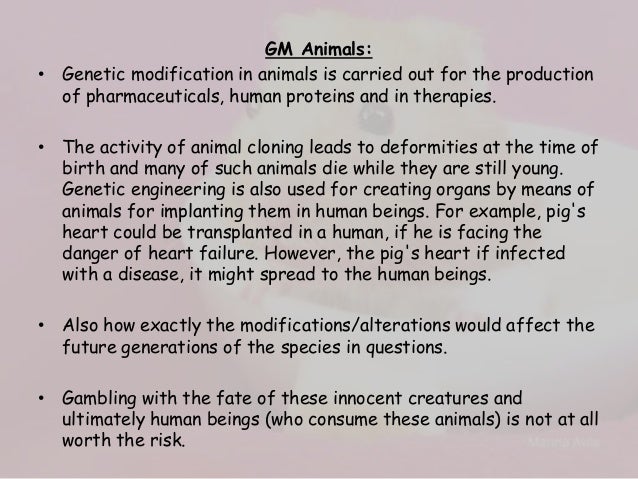

Modifications in sensitivity to soil abiotic factors (salinity, minerals …).Variations in sensitivity to climatic effects.Alterations in Greenhouse Gas Emissions.Changes in the interaction between plant and abiotic environment:.Interactions with the soil ecosystem with consequent biogeochemical effects.effects on bees and other non-pest insects, with consequences to biodiversity) Interactions with non-target organisms (e.g.induction of resistance in pests to which plants are resistant) Interactions with target organisms (e.g.Changes in the interaction between plant and biotic environment:.On the other hand, the use of GMOs brings risks, such as: A multi-dimensional strategy is necessary that creates suitable, specific activities for each situation. The only efficient way to reduce the proportion of undernourished locally is by using conventional means – for example by cultivating traditional food plants such as cassava root, but also through targeted support projects, educational programs, nutritional advice and political activities. Hunger and malnutrition are issues that often require additional social and political strategies.Įfforts are needed to maintain and develop varieties and cultivation methods should be adapted to the local needs together with the local population. Proponents predict that genetic engineering would increase yields in the fields due to the characteristics above, although this would not reach the desired level of food security. Resistance to viruses, fungi and bacteria.Tolerance to atmospheric stress, such as extreme temperatures, salinity, drought and floods.Most of the genetically modified plants present the following benefits: It is therefore particularly easy to influence consumer opinions with little effort.


Genetic engineering is a tricky issue and not everyone has specialized knowledge. Even over 20 years after the introduction of gene plants, we still lack on an extensive study on effects of genetically modified plants on humans. GMOs create a path that leads to advantages and benefits, but also raises extremely important questions. Several surveys have repeatedly shown that their vast majority do not want GM foods. Many consumers in the European Union, regardless of their level of education or nationality, take a critical distance from genetic engineering in food production.


 0 kommentar(er)
0 kommentar(er)
